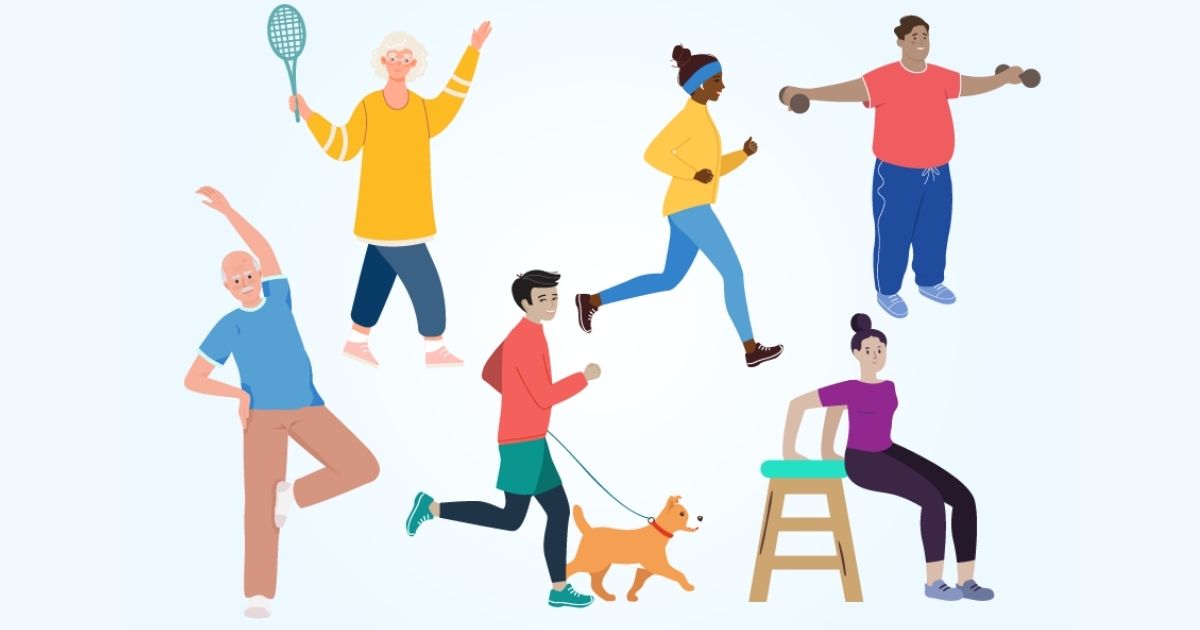In a recent study published in the journal “Mental Health and Physical Activity,” groundbreaking research has illuminated a significant relationship between anxiety sensitivity and decreased levels of physical activity.
This discovery underscores the profound impact of anxiety-related fears on an individual’s willingness to engage in physical exercise, shedding light on an issue that can have far-reaching implications for overall health and well-being.
Physical activity has long been recognized as a cornerstone of a healthy lifestyle. The benefits of regular exercise are well-documented, with studies showing that it can reduce the risk of chronic diseases, enhance mental well-being, and improve overall quality of life.
However, the new research delves into a previously underexplored aspect of physical activity – the role of anxiety sensitivity.
Understanding Anxiety Sensitivity
Anxiety sensitivity is a psychological concept that involves a heightened fear of experiencing anxiety-related bodily sensations, such as a racing heart, shortness of breath, or trembling. It’s a concept that has been extensively studied in the context of anxiety disorders, as these bodily sensations often trigger heightened levels of anxiety or panic attacks in those with anxiety sensitivity.
The study’s lead author, Sherry H. Stewart, a professor and Tier 1 Canada Research Chair at Dalhousie University, has dedicated over three decades of her research to studying anxiety sensitivity and its consequences.
According to Stewart, people with high anxiety sensitivity often engage in unhealthy behaviors, such as substance use, as a way to cope with their heightened fears. Previous research by Stewart and her team had also indicated that individuals with high anxiety sensitivity displayed avoidance of physical activity.
The Link Between Anxiety Sensitivity and Physical Activity
The new study investigated the connection between anxiety sensitivity and physical activity levels in-depth. The findings revealed a striking association between heightened anxiety sensitivity and reduced engagement in physical exercise. What makes this discovery particularly noteworthy is that the more intense the physical activity, the stronger this connection becomes.
These findings have significant implications for both mental and physical health. For individuals with high anxiety sensitivity, the fear of experiencing heightened anxiety-related sensations can act as a deterrent, leading them to avoid physical activities, especially those of greater intensity.
This avoidance can contribute to a sedentary lifestyle, which is associated with a range of health issues, including obesity, cardiovascular problems, and decreased overall well-being.
Anxiety sensitivity doesn’t just impact physical activity; it also influences a range of other behaviors, as noted by Professor Stewart. Understanding these connections can be crucial for developing effective strategies to address anxiety-related fears and improve mental and physical health outcomes.
While this research illuminates the link between anxiety sensitivity and physical activity, it also opens the door to further exploration. Future studies may delve into the ways in which anxiety sensitivity can be addressed or managed to encourage individuals to engage in physical exercise without fear of heightened anxiety sensations.
In conclusion, the study’s findings highlight a previously underappreciated aspect of anxiety sensitivity, underscoring its role in deterring individuals from participating in physical activities.
Addressing this issue could have far-reaching consequences for public health, as it may help people overcome their fears and embrace the many physical and mental health benefits that regular exercise offers.
As researchers continue to explore this area, they may uncover effective interventions that empower individuals to live healthier, more active lives, irrespective of their anxiety sensitivity.


























